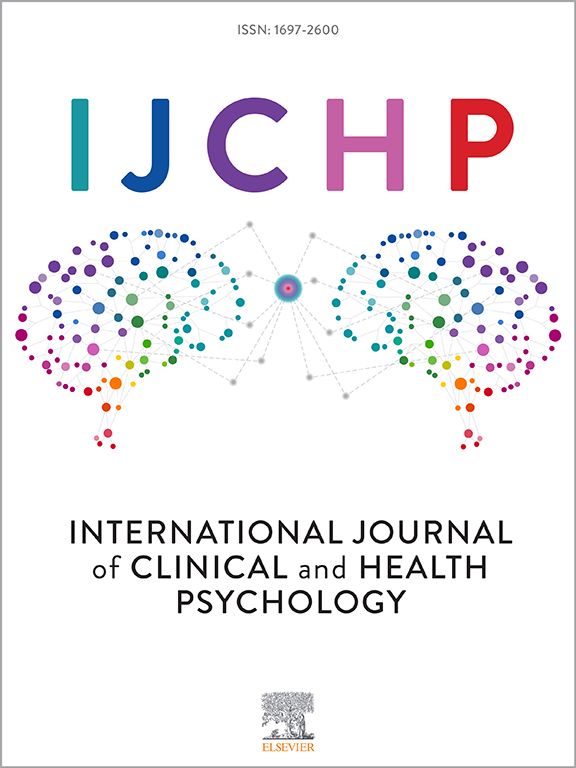机器学习驱动的血液生物标志物分析和EGCG干预胎儿酒精谱系障碍
IF 4.4
1区 心理学
Q1 PSYCHOLOGY, CLINICAL
International Journal of Clinical and Health Psychology
Pub Date : 2025-07-01
DOI:10.1016/j.ijchp.2025.100620
引用次数: 0
摘要
胎儿酒精谱系障碍(FASD)是由产前酒精暴露(PAE)引起的一种复杂的神经发育疾病,由于异质症状和诊断挑战而经常被误诊。本研究旨在确定FASD早期诊断的血清生物标志物,并评估绿茶中发现的天然抗氧化剂表没食子儿茶素没食子酸酯(EGCG)在调节FASD相关标志物中的潜力。采用Luminex免疫分析法分析FASD患者的血清样本,鉴定出7种与神经炎症和免疫失调有关的预测性生物标志物:IL-10、IFNγ、CCL2、NGFβ、IL-1β、CX3CL1和CXCL16。这些生物标志物反映了大脑健康的关键中断,特别是神经炎症,这有助于在FASD患者中经常观察到的认知、行为和精神健康挑战,包括记忆缺陷、注意力问题和情绪失调。为了提高诊断精度,机器学习(ML)模型在这些生物标志物数据集上进行了训练,随机森林(RF)达到了最高的准确度(0.89)、灵敏度(0.92)、特异性(0.83)和ROC AUC(0.88)。此外,一项在确诊为FASD的儿童中进行的开放标签试点研究显示,EGCG治疗12个月后,IFNy、CX3CL1、IL-1β、IL-10和NGFβ水平显著恢复,表明其在减轻神经炎症反应和促进神经发生方面具有潜在作用。这些发现强调了将血清生物标志物与ml驱动的方法结合起来推进FASD诊断的价值,同时也确定了EGCG作为与该疾病相关的神经发育和精神健康损伤的有希望的干预手段。本文章由计算机程序翻译,如有差异,请以英文原文为准。
Machine learning-driven blood biomarker profiling and EGCG intervention in fetal alcohol spectrum disorder
Fetal alcohol spectrum disorder (FASD) is a complex neurodevelopmental condition caused by prenatal alcohol exposure (PAE), often underdiagnosed due to heterogeneous symptoms and diagnostic challenges. This study aimed to identify serum-based biomarkers for early FASD diagnosis and assess the potential of epigallocatechin gallate (EGCG), a natural antioxidant found in green tea, in modulating markers related to FASD. Luminex immunoassays were employed to analyze serum samples from FASD patients, identifying seven predictive biomarkers involved in neuroinflammation and immune dysregulation: IL-10, IFNγ, CCL2, NGFβ, IL-1β, CX3CL1, and CXCL16. These biomarkers reflect key disruptions in brain health, particularly in neuroinflammation, which contributes to the cognitive, behavioral, and mental health challenges frequently observed in FASD patients, including memory deficits, attention problems, and emotional dysregulation. To enhance diagnostic precision, machine learning (ML) models were trained on these biomarker datasets, with Random Forest (RF) achieving the highest accuracy (0.89), sensitivity (0.92), specificity (0.83), and ROC AUC (0.88). Additionally, an open-label pilot study in children diagnosed with FASD showed significant restoration of the levels of IFNy, CX3CL1, IL-1β, IL-10, and NGFβ after 12 months of EGCG treatment, suggesting its potential role in mitigating neuroinflammatory responses and promoting neurogenesis. These findings underscore the value of integrating serum biomarkers with ML-driven approaches to advance FASD diagnostics, while also identifying EGCG as a promising intervention for neurodevelopmental and mental health impairments associated with the disorder.
求助全文
通过发布文献求助,成功后即可免费获取论文全文。
去求助
来源期刊

International Journal of Clinical and Health Psychology
PSYCHOLOGY, CLINICAL-
CiteScore
10.70
自引率
5.70%
发文量
38
审稿时长
33 days
期刊介绍:
The International Journal of Clinical and Health Psychology is dedicated to publishing manuscripts with a strong emphasis on both basic and applied research, encompassing experimental, clinical, and theoretical contributions that advance the fields of Clinical and Health Psychology. With a focus on four core domains—clinical psychology and psychotherapy, psychopathology, health psychology, and clinical neurosciences—the IJCHP seeks to provide a comprehensive platform for scholarly discourse and innovation. The journal accepts Original Articles (empirical studies) and Review Articles. Manuscripts submitted to IJCHP should be original and not previously published or under consideration elsewhere. All signing authors must unanimously agree on the submitted version of the manuscript. By submitting their work, authors agree to transfer their copyrights to the Journal for the duration of the editorial process.
 求助内容:
求助内容: 应助结果提醒方式:
应助结果提醒方式:


